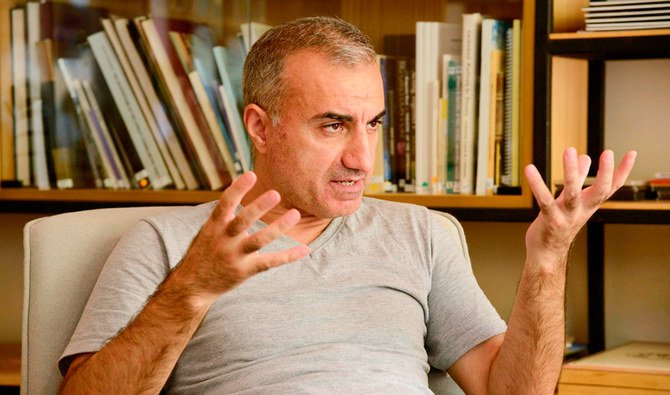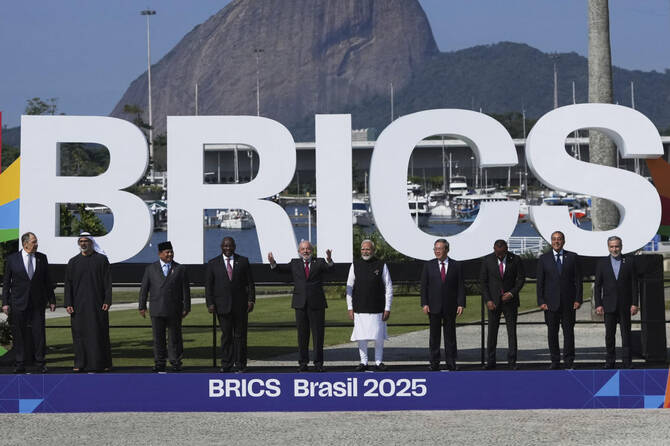NICOSIA: Dissident Iranian singer Omid Tootian has for days been sleeping in a tent in the buffer zone of the world’s last divided capital, after being refused entry by the Republic of Cyprus.
“I can’t go to one side or the other,” the performer, in his mid-40s, whose songs speak out against Iranian authorities, told AFP. “I’m stuck living in the street.”
His tent is pitched between two checkpoints in western Nicosia, among the weeds outside an abandoned house in the quasi-“no man’s land” that separates the northern and southern parts of Cyprus, which has been divided since 1974.
In early September, he traveled to the north of the Mediterranean island, controlled by the self-proclaimed Turkish Republic of Northern Cyprus (TRNC), recognized only by Ankara.
Two weeks later, Tootian, who had been living in Turkey for around three years, tried for the first time to seek asylum in the Republic of Cyprus, which controls the southern two-thirds of the island and is in the EU. But once at the green line, the 180 -km buffer zone that traverses the island and is patrolled by UN peacekeepers, he was denied entry into the south.
Refusing to return to the TRNC, where he fears he would be in danger, Tootian found himself in limbo in the few hundred meters of land that divides the two territories.
“I don’t know why they haven’t approved my entry … but I think it’s because of the coronavirus,” he said, speaking at the pro-unification Home for Cooperation community center in the buffer zone where he eats, grooms and spends most of his days.
“But I hope things will become clear because now I don’t know what will happen, and it’s a very difficult situation.”
Because his songs are very critical of the Iranian regime, Tootian fears that if he returns to the north of the island, he will first be sent back to Turkey and then to Iran.
Turkey is no longer a safe country for me because the Turkish regime is close to Iran.
Omid Tootian, Dissident Iranian singer
“Turkey is no longer a safe country for me because the Turkish regime is close to Iran,” he said, adding that he had for the past six months been receiving anonymous “threats” from unknown callers using private phone numbers.
In July, three Iranians were sentenced to death by the Islamic republic. Two of them had initially fled to Turkey and, according to the non-governmental group the Center for Human Rights in Iran, Turkish authorities cooperated with Tehran to repatriate them.
Since arriving at the checkpoint, Tootian has tried “four or five times” in a week to enter, without success, despite the help of a migrant rights advocacy group known as KISA and the UN mission in the buffer zone.
According to European and international regulations, Cyprus cannot expel an asylum seeker until the application has been considered and a final decision issued.
The police said “they have restrictions not to let anybody in,” KISA member Doros Polycarpou told AFP.
Cypriot police spokesman Christos Andreou said “it is not the responsibility of the police” to decide who can enter the Republic of Cyprus.
They “follow the instructions of the Ministry of Interior,” put in place “because of the pandemic,” he added.
According to the ministry, “all persons who are willing to cross from a legal entry point to the area controlled by the Republic must present a negative COVID-19 test carried out within the last 72 hours” — a requirement Tootian said he had fulfilled.
Polycarpou charges that the Cypriot “government has used the pandemic to restrict basic human rights.”
A spokeswoman for the UN refugee agency in Cyprus Emilia Strovolidou said “there are other means to protect asylum seekers and public health at the same time … we can test people when they arrive or take quarantine measures.”
“We have someone who is seeking international protection, he should have access to the process,” she added.
Due to the closure of other migration routes to Europe, asylum applications have increased sixfold over the last five years in Cyprus — a country of fewer than 1 million inhabitants — from 2,265 in 2015 to 13,650 in 2019, according to Eurostat data.
AFP






















